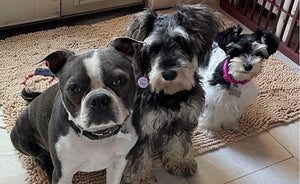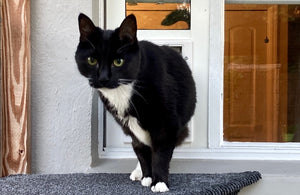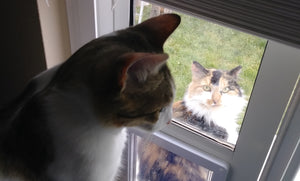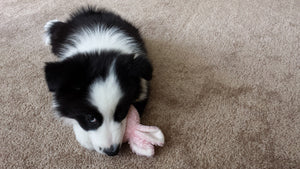How Often Do Cats Go Into Heat?
If you have a female cat who hasn’t been spayed yet, then it’s only a matter of time before she goes into heat. What many new cat owners don’t realize is that cats will begin to go into heat sooner and with far more frequency than they expect. Many cat owners also do not know how being in heat will affect their cat’s health and behavior.
So read on to find out what exactly is a heat and what you can expect your cat to undergo during that time.

What Are Cats’ Heats?
A heat is a part of a cat’s reproductive cycle (estrus) where her body is fertile and her instincts drive her to look for a male mate. This is when your cat is going to be looking to make a litter of kittens, which can have some strange effects on her behavior.
Cats can’t tell you when they’re experiencing estrus, but there are a few signs that your cat’s heat is currently going on:
- Loud meowing or yowling (also referred to as “caterwauling”)
- Rolling around on the floor
- Smellier urination or an increase in potty accidents
- Affectionate behavior
- Sticking their butts into the air (especially when being petted)
- Increased attempts to escape their home (those with cat doors may see more occurrences of their cat not coming back home as frequently)
- Some vaginal discharge or bleeding (rare)
While some of these behaviors are purely biological in origin, many such as the caterwauling or increased urination are all a part of your cat’s efforts to find a mate. Many of these behaviors can also cause some discomfort to your cat, though many specialists believe that your cat will most likely experience a lot of frustration over not being able to find a mate.
When and How Often Do Cats Go Into Heat?
Cats experience their first heat younger than most pet owners realize, often beginning when they are four to six months of age. While this may seem very young, even kittens can become pregnant during their first heat cycle.
Heats also occur more frequently than some pet owners realize. An average cat’s estrous cycle occurs as often as every two to three weeks and can last anywhere from a few days to a full two weeks. They can also have multiple heat cycles when it is breeding season.
Breeding season typically occurs at the end of winter when the weather is warmer and there are more daylight hours. However, if you have an indoor cat, you will not need to worry about this since your cat will live in comfortable conditions year round.
Cats also don’t experience menopause, or an end to their reproductive cycles. This means that even your senior cat is at risk of getting pregnant.
If you want to prevent your cat from getting pregnant, you will have to either isolate them from any male cats during their heat (even their family members) or get them spayed. Due to the behavoiral problems being in heat can cause, we recommend getting your cat spayed.
Does Being In Heat Cause Health Problems In Your Cat?
The biggest and more serious health risk is a condition nown as pyometra.
Pyometra is an infection that causes your cat’s uterus to fill with pus and bacteria, which can lead to shock, a ruptured uterus, and death. Emergency spay surgery can be required to save your cat if they have a severe case.
Pyometra is a serious condition that generally occurs when your cat has undergone many heat cycles without mating. Symptoms include the following:
- Fever
- Lack of appetite
- Vomitting
- Lack of energy
- Pus or other discharge coming from the vulva
If any of these symptoms occure a few weeks post-heat, take your cat to the hospital immediately.
Not all unspayed cats will develop pyometra, but the risk is so severe that if you know you don’t want your cat to have any kitten, then you should spay them, This is especially true has there is no sure way to prevent heats. Some vetinarians offer injections that can stop a heat, but the health risks are also severe and only last for one mating cycle.
Besides looking out for any health problems, one of the best things you can do for your cat when they are in heat is listen to their needs. Give them attention, a few more pets, or if they want it, space and some extra treats.





